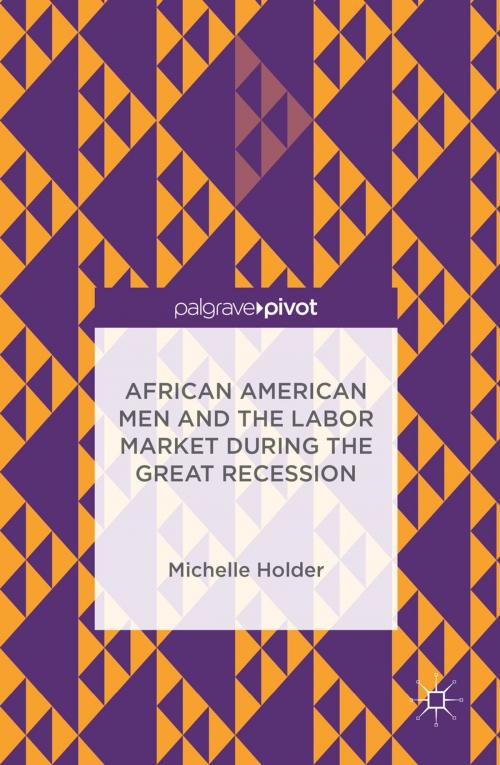African American Men and the Labor Market during the Great Recession
Business & Finance, Economics, Urban & Regional, Nonfiction, Social & Cultural Studies, Social Science, Cultural Studies, Ethnic Studies| Author: | Michelle Holder | ISBN: | 9781137563118 |
| Publisher: | Palgrave Macmillan US | Publication: | November 3, 2016 |
| Imprint: | Palgrave Macmillan | Language: | English |
| Author: | Michelle Holder |
| ISBN: | 9781137563118 |
| Publisher: | Palgrave Macmillan US |
| Publication: | November 3, 2016 |
| Imprint: | Palgrave Macmillan |
| Language: | English |
This book analyzes the status and position of African American men in the U.S. labor market prior to, during, and after the Great Recession. Using a model of occupational crowding, the book outlines how the representation of African American men in major occupational categories almost universally declined during the recent recession even as white non-Hispanic men were able to maintain their occupational representation in the face of staggering job losses. Using US Census Bureau data, this book illustrates how African American men sought to insulate their group from devastating job losses by increasing their educational attainment in a job market where employers exercised more leverage in hiring. However, this strategy was unable to protect this group from disparate job losses as African American men became further marginalized in the workforce during the Great Recession. Policy approaches to address high African American male unemployment are outlined in the final chapter.
This book analyzes the status and position of African American men in the U.S. labor market prior to, during, and after the Great Recession. Using a model of occupational crowding, the book outlines how the representation of African American men in major occupational categories almost universally declined during the recent recession even as white non-Hispanic men were able to maintain their occupational representation in the face of staggering job losses. Using US Census Bureau data, this book illustrates how African American men sought to insulate their group from devastating job losses by increasing their educational attainment in a job market where employers exercised more leverage in hiring. However, this strategy was unable to protect this group from disparate job losses as African American men became further marginalized in the workforce during the Great Recession. Policy approaches to address high African American male unemployment are outlined in the final chapter.















